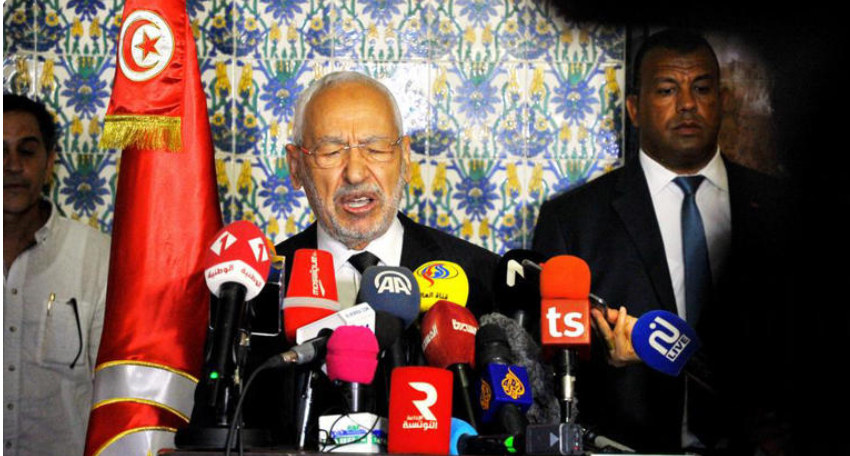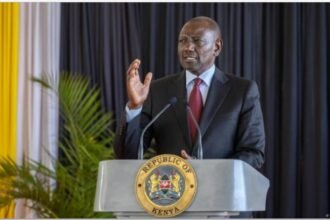By Mohamed Ghani
TUNIS, Tunisia – A Tunisian court on Tuesday sentenced 21 prominent politicians and officials, including leading opposition figure Rached Ghannouchi, to lengthy prison terms ranging from 12 to 35 years, in a mass trial that critics say underscores President Kais Saied’s tightening grip on power.
The sweeping convictions have intensified accusations that President Saied is using the judiciary to systematically target and silence political opponents.
Among those sentenced, 10 are currently in custody in Tunisia, while 11 others have reportedly fled the country. The charges levelled against the group include serious accusations such as participating in an organization linked to terrorist acts, inciting violence, attempting to overthrow the government, and recruiting and training individuals for terrorist purposes both domestically and abroad.
Defense lawyers for Rached Ghannouchi issued a statement asserting, “All accusations were based on a false and contradictory testimony by a secret, anonymous witness who failed to present any evidence for his baseless and contradictory allegations, and who ultimately retracted most of them.”
Key Opposition Figures Jailed
Rached Ghannouchi, the 84-year-old leader of the Ennahda party and former speaker of the parliament — which President Kais Saied unilaterally dissolved in 2021 — received a 14-year sentence in this latest ruling. Ghannouchi has been held in prison since 2023 and has already accumulated three separate sentences, now totaling 27 years. He has reportedly refused to appear in court, citing his belief that the judicial system is heavily controlled by the government.
Several other high-profile figures received the maximum 35-year sentences. These include former intelligence chief Kamel Guizani, former Foreign Minister Rafik Abdessalem, and Mouadh Ghannouchi, son of Rached Ghannouchi. All three are understood to have left the country prior to their sentencing. Local media, including Mosaique FM, also reported that Nadia Akacha, President Saied’s former chief of staff, was among those sentenced.
Saied’s Consolidation of Power
President Saied, who assumed power six years ago, has increasingly cracked down on dissenting voices since dissolving the elected parliament in July 2021 and subsequently rewriting the constitution. This latest mass sentencing follows a similar large-scale trial in April this year, where 66 politicians, business owners, and lawyers were handed prison sentences of up to 66 years.
Activists and opposition figures contend that Tunisia’s fragile democracy, which emerged from the 2011 Arab Spring uprisings, has been severely undermined under Saied. They accuse him of leveraging the judiciary and security forces as tools to achieve his political objectives and eliminate opposition.
President Saied, however, has consistently defended his actions, stating they are necessary to combat widespread corruption among the elite and to reform the country’s political system.









